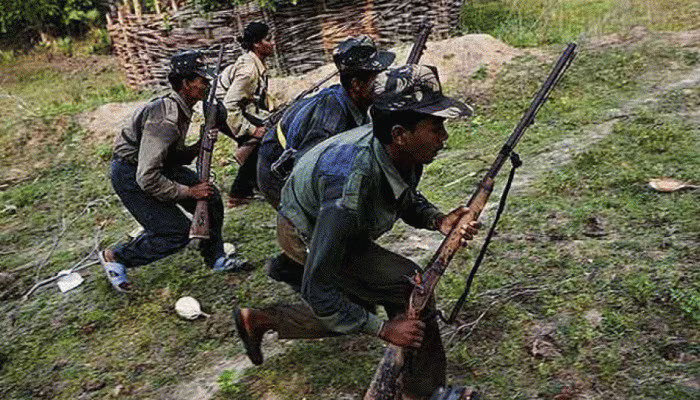Left-wing extremism poses a persistent threat to national security and stability. The National Investigation Agency (NIA) recently underscored this concern, taking substantial steps to address it. Their actions included seizing Rs. 1.13 crore linked to escalating Maoist operations in the Magadh region, as detailed in their press release. This seizure not only signifies the financial support crucial to sustaining extremist activities but also highlights the NIA’s proactive approach in combating such threats. This ongoing effort underscores the critical need for robust measures to counteract the influence and operational capabilities of extremist groups, safeguarding the nation’s security and social harmony.
Source of the Funds
The substantial sum seized originated from businessmen in Bihar and Jharkhand, earmarked for financing the medical education of a Naxalite organization member’s relative. The NIA investigation uncovered that these funds were directly routed to a Chennai-based medical college to secure admission for a Maoist terrorist’s kin. Bank accounts linked to the accused’s associates facilitated this transaction, underscoring a complex web of financial support used to further the Maoist agenda through education funding. This revelation highlights the adaptability and resourcefulness of extremist groups in leveraging unconventional means to sustain their activities and expand their influence.
Main Accused and their Relatives
The investigation uncovered that CPI (Maoist) members had coerced businessmen into providing funds. Specifically, those seeking to exploit these funds included relatives of CPI (Maoist) figure Pradyuman, such as Tarun Kumar’s niece, known by aliases Abhinav, Gaurav, or Bittu. These individuals were already under scrutiny, leading to the arrest of two suspects. Legal proceedings, including the filing of charge sheets and supplementary charge sheets, have commenced against the accused. This development underscores ongoing efforts to address the financial and operational networks of Maoist organizations, aiming to disrupt their activities and uphold national security measures effectively.
Previous Actions by NIA
In January of the previous year, the National Investigation Agency (NIA) took significant legal action by filing charge sheets against two individuals accused of various offenses under the Indian Penal Code (IPC) and the Unlawful Activities (Prevention) Act (UAPA) before its specialized court in Ranchi. This initial step was followed by further legal maneuvers later in June, when a supplementary charge sheet was submitted against another suspect. By December, the NIA intensified its efforts with a second supplementary charge sheet, targeting two additional individuals allegedly involved in the same criminal activities, thereby reinforcing its commitment to thorough investigation and prosecution of the accused.
Revival of Maoist Organization
This disclosure highlights efforts to revive Maoist activities. The NIA’s actions indicate that Maoist organizations are resorting to various methods to fund their activities. The amount extorted for admission to a medical college suggests that Maoist organizations are adopting new ways to finance their activities.
Impact on National Security
The resurgence of Maoist activities and their funding methods are crucial concerns for national security. It not only jeopardizes state security but also creates an environment of instability and fear in society. The NIA’s actions make it clear that Maoist organizations are still active and are attempting to strengthen their networks.
Future Actions
Following this disclosure, the responsibility of the NIA and other security agencies has increased. They not only need to closely monitor Maoist activities but also cut off their sources of funding. Furthermore, there is a need for stringent legal action against Maoist organizations to prevent them from achieving their goals.
Conclusion
The resurgence of Maoist activities in India is a serious concern for national security. The swift and precise actions of the NIA indicate that the government and security agencies are serious about this issue. However, this is just the beginning.
The fight against Left-wing extremism is long and challenging, requiring continuous vigilance, strict legal measures, and awareness in society. Security agencies must not only monitor Maoist activities but also remain vigilant in dismantling their networks.
